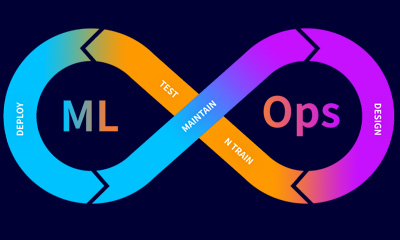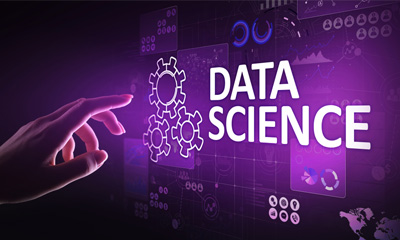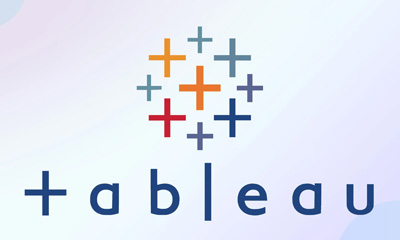Artificial Intelligence
The Artificial Intelligence (AI) course is designed to provide a comprehensive introduction to the concepts, techniques, and applications of AI. This course covers the fundamentals of AI, including machine learning, neural networks, natural language processing, and robotics. Students will gain both theoretical knowledge and practical skills through hands-on projects and case studies, preparing them to tackle real-world AI challenges.
Course Rating :
4.8 (926)

Course Overview
The Artificial Intelligence (AI) course is designed to provide a comprehensive introduction to the concepts, techniques, and applications of AI. This course covers the fundamentals of AI, including machine learning, neural networks, natural language processing, and robotics. Students will gain both theoretical knowledge and practical skills through hands-on projects and case studies, preparing them to tackle real-world AI challenges.
Key Points
In this course, you will learn how to:
- Understanding AI Fundamentals: Learn the basic concepts, history, and evolution of artificial intelligence.
- Machine Learning Techniques: Master various machine learning algorithms and techniques for predictive modeling.
- Neural Networks: Gain in-depth knowledge of neural networks and deep learning, including architectures like CNNs and RNNs.
- Natural Language Processing (NLP): Understand and apply NLP techniques for text analysis and language generation.
- Robotics and Automation: Explore the role of AI in robotics and the development of intelligent systems.
- Ethical AI: Discuss the ethical considerations and societal impacts of AI technologies.
- Practical Applications: Engage in hands-on projects to build and deploy AI models solving real-world problems
Course Curriculum
Overview of AI
- History and evolution of AI
- Key AI concepts and terminology
- Types of AI: Narrow AI vs. General AI
Python Basics
- Python programming fundamentals
- Data structures: lists, dictionaries, sets, and tuples
- Control flow: loops and conditionals
- Functions and modules
- Required Modules: python
Advanced Python
- Object-Oriented Programming (OOP)
- Exception handling
- File handling
- Working with libraries: NumPy, Pandas
- Required Modules: numpy, pandas
Data Preprocessing
- Data cleaning and manipulation
- Handling missing values
- Feature scaling and normalization
- Encoding categorical data
- Required Modules: numpy, pandas, sklearn
Data Visualization
- Introduction to Matplotlib and Seaborn
- Creating various plots: line, bar, scatter, histogram
- Plot customization and styling
- Using Plotly for interactive visualizations
- Required Modules: matplotlib, seaborn, plotly
Introduction to Machine Learning
- Supervised vs. unsupervised learning
- Key ML algorithms and their applications
- Evaluation metrics: accuracy, precision, recall, F1 score
- Required Modules: sklearn, numpy, pandas
Regression Techniques
- Simple linear regression
- Multiple linear regression
- Polynomial regression
- Evaluating regression models
- Required Modules: sklearn, numpy, pandas
Classification Techniques
- Logistic regression
- k-Nearest Neighbors (k-NN)
- Support Vector Machine (SVM)
- Decision trees and Random forests
- Evaluating classification models
- Required Modules: sklearn, numpy, pandas
Clustering Techniques
- k-Means clustering
- Hierarchical clustering
- DBSCAN
- Evaluating clustering models
- Required Modules: sklearn, numpy, pandas
Introduction to Neural Networks
- Perceptron and multi-layer perceptrons
- Activation functions
- Training neural networks with backpropagation
- Required Modules: tensorflow, keras
Deep Learning with TensorFlow and Keras
- Introduction to TensorFlow and Keras
- Building and training neural networks
- Convolutional Neural Networks (CNNs)
- Recurrent Neural Networks (RNNs)
- Transfer learning and fine-tuning
- Required Modules: tensorflow, keras
Basics of NLP
- Text preprocessing: tokenization, stemming, lemmatization
- Sentiment analysis
- Bag of Words and TF-IDF
- Required Modules: nltk, spacy, sklearn
Advanced NLP Techniques
- Word embeddings: Word2Vec, GloVe
- Sequence models: LSTM, GRU
- Transformers and BERT
- Required Modules: gensim, tensorflow, transformers
AI on Cloud Platforms
- Introduction to AWS AI/ML services
- Introduction to Azure AI/ML services
- Setting up cloud environments
- Required Tools: AWS Management Console, Azure Portal
Deploying AI Models on AWS
- Using AWS SageMaker for model training and deployment
- Integrating AI models with AWS Lambda and API Gateway
- Monitoring and managing deployed models
- Required Tools: AWS SageMaker, AWS Lambda, API Gateway
Deploying AI Models on Azure
- Using Azure Machine Learning for model training and deployment
- Integrating AI models with Azure Functions and Azure API Management
- Monitoring and managing deployed models
- Required Tools: Azure Machine Learning, Azure Functions, API Management
Computer Vision
- Image processing techniques
- Object detection with YOLO and SSD
- Image segmentation
- Required Modules: opencv-python, tensorflow, keras
Reinforcement Learning
- Introduction to reinforcement learning
- Q-learning and Deep Q-Networks (DQNs)
- Applications of reinforcement learning
- Required Modules: gym, tensorflow, keras
AI Ethics
- Ethical considerations in AI
- Bias and fairness in AI models
- Privacy and data security
Future Trends in AI
- Advances in AI research
- AI in industry: case studies
- Preparing for a career in AI
Capstone Project
- Define a real-world problem
- Data collection and preprocessing
- Model development and evaluation
- Deployment and presentation
- Required Modules: All relevant modules from previous topics as per project requirements
Learning Outcome
By the end of this course, students will be able to:
- Understand the core concepts of artificial intelligence and its history.
- Implement basic and advanced machine learning algorithms, including supervised and unsupervised learning techniques.
- Develop, train, and optimize neural networks for various applications such as image recognition and natural language processing.
- Apply natural language processing techniques to analyze and generate text data, including sentiment analysis and language translation.
- Explore the ethical implications and societal impacts of AI, including issues of bias, privacy, and decision-making.
- Build AI models to solve real-world problems, including predictive analytics, recommendation systems, and autonomous agents.
- Integrate AI techniques with other technologies such as IoT (Internet of Things) and blockchain.
- Understand and utilize AI frameworks and libraries such as TensorFlow, Keras, and PyTorch.
- Evaluate the performance of AI models and improve their accuracy and efficiency.
- Gain insights into the future trends and advancements in AI and their potential impact on various industries.
Who this course is for?
This Artificial Intelligence course is designed for:
Students: College students or recent graduates looking to build a career in AI.
Professionals: IT professionals, data scientists, and engineers who want to upskill and stay competitive in the AI field.
Enthusiasts: Anyone with a passion for AI and a basic understanding of programming and mathematics.
FAQs
The AI course is designed to be completed over a period of 12 weeks. It includes both live sessions and recorded lectures to offer flexibility for students.
Basic understanding of programming (preferably Python) and foundational knowledge in mathematics are recommended to get the most out of this course.
This course is suitable for:
- College students or recent graduates looking to build a career in AI.
- IT professionals, data scientists, and engineers who want to upskill and stay competitive in the AI field.
- Enthusiasts with a passion for AI and a basic understanding of programming and mathematics.
You will learn:
- Fundamental concepts of AI and its history.
- Implementation of machine learning algorithms.
- Development and training of neural networks.
- Natural language processing techniques.
- Ethical considerations and societal impacts of AI.
- Building AI models for real-world applications.
Students will engage in hands-on projects such as:
- Developing predictive models.
- Creating image recognition systems.
- Implementing natural language processing applications like chatbots and sentiment analysis.
- Building recommendation systems.
Yes, upon successfully completing the course and all assignments, you will receive a certificate of completion.
This course includes both self-paced recorded lectures and live instructor-led sessions to provide a comprehensive learning experience.
Students will have access to:
- Live Q&A sessions with instructors.
- Discussion forums to interact with peers and instructors.
- Additional resources such as reading materials and tutorials.
This course provides a strong foundation in AI, equipping you with skills highly sought after in industries like technology, healthcare, finance, and more. It prepares you for roles such as AI Engineer, Data Scientist, Machine Learning Engineer, and more.
You will learn to use popular AI frameworks and libraries such as TensorFlow, Keras, PyTorch, and others. Practical assignments will involve working with these tools to build and deploy AI models.
Yes, the course is designed for beginners as well as those with some experience in AI. The only prerequisites are a basic understanding of programming and mathematics.
You can enroll by visiting our website and filling out the registration form. Payment options and course schedules are also available on the enrollment page.
We offer various payment options including credit/debit cards, PayPal, and bank transfers.
Yes, we offer group discounts for corporate teams and scholarships for eligible students. Please contact our support team for more details.
Yes, you will have lifetime access to all course materials, recorded lectures, and resources even after completing the course.
Certifications
Here are some reputable AI certifications that participants can pursue to validate their skills and enhance their credentials in the field of Artificial Intelligence:
Top AI Certifications
1. Google Cloud Professional Machine Learning Engineer
- Provider: Google Cloud
- Overview: This certification demonstrates your ability to design, build, and deploy machine learning models on Google Cloud. It covers topics such as ML frameworks, data engineering, and model deployment.
- Exam: Multiple-choice exam, available online or at a testing center.
- Preparation: Google offers training courses and hands-on labs through Qwiklabs and Coursera.
- Link: Google Cloud Professional Machine Learning Engineer
2. Microsoft Certified: Azure AI Engineer Associate
- Provider: Microsoft
- Overview: This certification validates your expertise in using Azure AI services to build, manage, and deploy AI solutions that involve natural language processing, speech, computer vision, and predictive analytics.
- Exam: Exam AI-102: Designing and Implementing an Azure AI Solution.
- Preparation: Microsoft Learn, free online training, and instructor-led training.
- Link: Azure AI Engineer Associate
3. IBM AI Engineering Professional Certificate
- Provider: IBM on Coursera
- Overview: This certification provides comprehensive knowledge of AI, machine learning, deep learning, and the use of IBM Watson for AI solutions. It includes practical experience with real-world projects.
- Courses: 6 courses covering AI and ML concepts, neural networks, deep learning, and more.
- Link: IBM AI Engineering Professional Certificate
4. AWS Certified Machine Learning – Specialty
- Provider: Amazon Web Services (AWS)
- Overview: This certification is designed for individuals who perform a development or data science role. It validates your ability to build, train, tune, and deploy machine learning models on AWS.
- Exam: Multiple-choice exam, available online or at a testing center.
- Preparation: AWS Training and Certification provides various resources, including the Machine Learning Pathway and practice exams.
- Link: AWS Certified Machine Learning – Specialty
5. TensorFlow Developer Certificate
- Provider: TensorFlow (Google)
- Overview: This certification demonstrates your proficiency in using TensorFlow to build and train models. It focuses on core concepts such as data pipeline, model building, and deployment.
- Exam: Practical exam requiring the completion of tasks using TensorFlow.
- Preparation: TensorFlow offers a comprehensive preparation course on Coursera and other resources.
- Link: TensorFlow Developer Certificate
6. DataCamp Machine Learning Scientist with Python
- Provider: DataCamp
- Overview: This career track includes multiple courses focused on machine learning with Python, covering supervised and unsupervised learning, neural networks, and deep learning.
- Courses: 23 courses covering various aspects of machine learning.
- Link: DataCamp Machine Learning Scientist with Python
7. EDX Professional Certificate in Machine Learning and Artificial Intelligence
- Provider: edX (Columbia University)
- Overview: This program provides a deep dive into machine learning, covering algorithms, data mining, and statistical pattern recognition.
- Courses: 5 courses, including hands-on projects and real-world applications.
- Link: edX Machine Learning and Artificial Intelligence
Benefits of AI Certifications
- Skill Validation: Certifications provide formal recognition of your AI skills and knowledge.
- Career Advancement: They enhance your resume and can lead to better job opportunities and higher salaries.
- Practical Experience: Many certification programs include hands-on projects, giving you practical experience with AI tools and techniques.
- Industry Recognition: Certifications from reputable organizations like Google, Microsoft, AWS, IBM, and others are widely recognized in the industry.
By pursuing these certifications, participants in your AI course can further validate their expertise and improve their career prospects in the field of Artificial Intelligence.
Enroll Free Demo Class
Have Any Questions ?
- 521 Dyson Rd HainesCity FL 33844
- info@rbcloudgenx.com
- +1 8043007153
Prerequisites
Here are the prerequisites for a Artificial Intelligence course:
- Basic Computer Skills: Familiarity with operating systems (Windows, macOS, Linux) and file management.
- Programming Proficiency: Solid understanding of Python, including data structures, control flow, functions, and basic libraries like NumPy and Pandas.
- Mathematics Fundamentals: Basic knowledge of linear algebra (vectors, matrices), calculus (derivatives, integrals), and probability/statistics.
- Data Handling: Ability to manipulate and analyze data using Python libraries (NumPy, Pandas) and create basic visualizations (Matplotlib, Seaborn).
- Logical Thinking: Strong problem-solving skills and analytical thinking.
These prerequisites will ensure participants can effectively engage with and understand the concepts covered in an Artificial Intelligence course.
Our Other Courses
This comprehensive MLOps course is designed to bridge the gap between data science and operations. By the end of this course, participants..
Data Science is an interdisciplinary field that combines statistical analysis, machine learning, and domain expertise to extract insights from data.
This comprehensive Power BI course is designed to equip learners with the skills and knowledge to transform data into actionable insights.
This comprehensive Tableau course covers both Tableau Desktop and Tableau Server, providing participants with the skills to visualize.
Rate This Course !
Click on a star to rate it!
Average rating 3 / 5. Vote count: 1
No votes so far! Be the first to rate this post.





